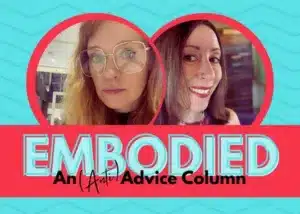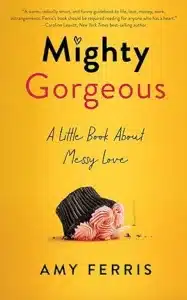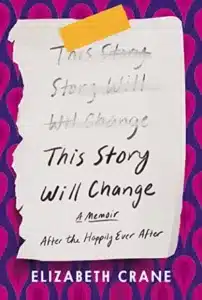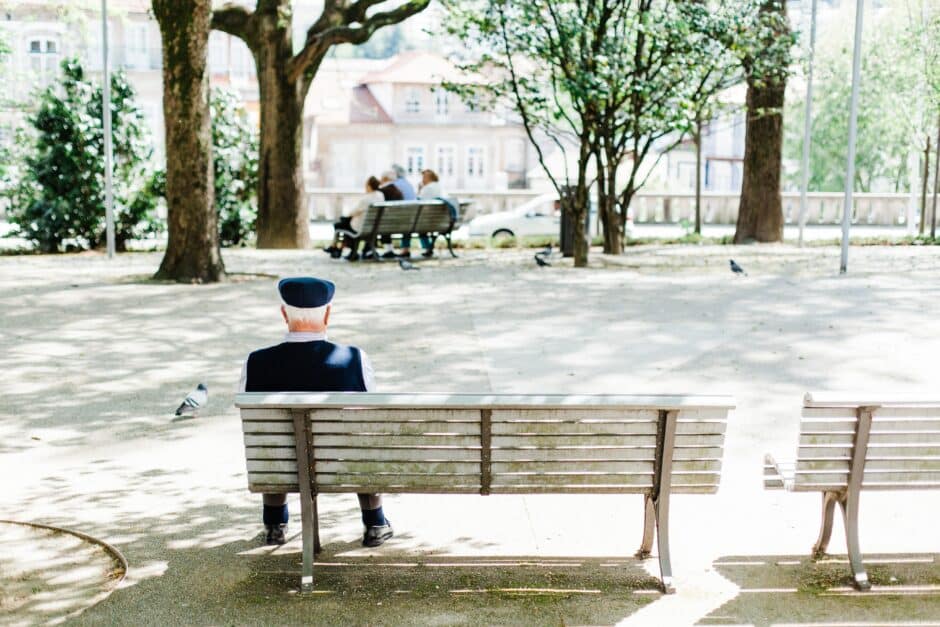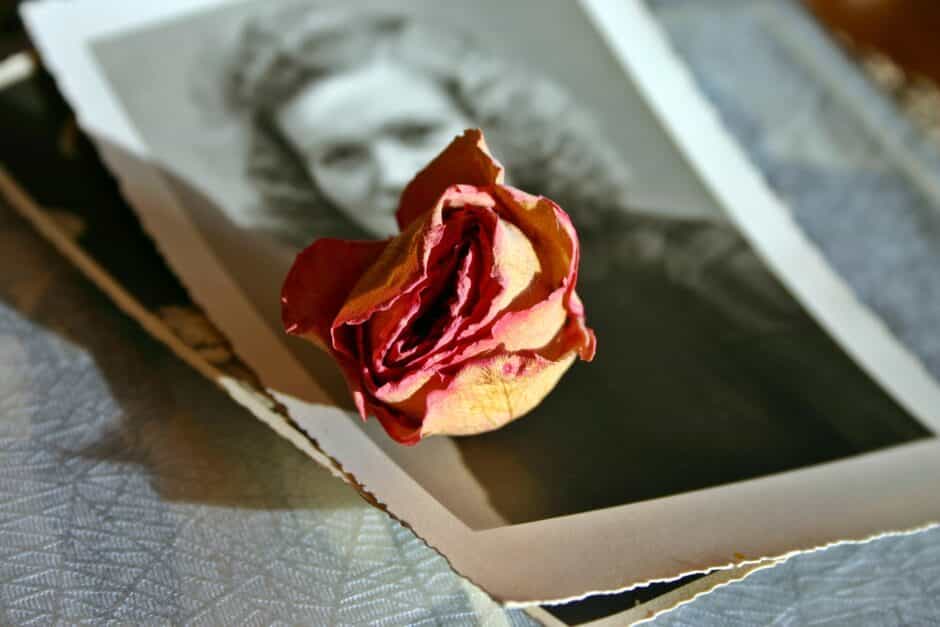In the beginning, I couldn’t make anything. I sat at the wheel watching the spinning lump of clay, unsure of my next move. The creation of a thing requires two essential inputs: the raw material and the shaping of that material. When I first started to pot, both perplexed me. I know more now. Today, I want to challenge myself and make something special, something that will evoke the goodness of life.
I open the bag of clay and an odor redolent of summer rain on black soil envelops and comforts me. This ancient mixture of earth and water has been around since (at least) the third day of the world. The smell disperses into the air as I cut off a clammy chunk and knead it into a soft, three-pound ball with the objective of “throwing off the hump,” a technique of making two or more pots from a single lump of clay. This method of throwing reminds me of cell division and the miracle of creation. Of course, I am just a potter; I’m not creating life, but it gets me thinking: how do I—how am I formed?
#
I’ve had two fathers. I was three months old when I lost Eliahu, the father whose DNA I carry. My parents were separated by the time I was born, but I know Eliahu saw me a few times before deciding to open a bottle of Orange Crush, swallow several-hundred pills and break free from the turbulent orbit that had become his world.
My older sister Ruth and I could not ask our mother about Eliahu—neither his life nor his death. I told myself that I didn’t care to know, but Ruth did, and it was me that she turned to for solace when her questions went unanswered. Our mother’s reluctance to talk drove her to snooping. One day, when Ruth was fourteen, she found his suicide letter.
I was nine when my sister showed me that letter suffused with emotions I didn’t understand. Emptiness, despair, and self-loathing—his cup overflowed with pain, and he wanted only to empty it, to finish his suffering. It was titillating to be privy to such a secret, but the feeling dissipated, and I filed the information into deep storage, believing I had no right to pine after someone I couldn’t remember. Wanting to be an agreeable daughter, I accepted my mother’s silence and looked toward the future. When I was seventeen, I visited Israel for the first time and met Eliahu’s family. They poured their love and acceptance onto me, and I was stunned. As I was taken from house to house, each new relative stared at my dark thick hair, deep-set eyes, and shy smile, their hands covering gaping mouths. Hee kol kach doma lo! She looks so much like him, they all said.
#
I drop the ball of clay onto the pottery wheel, aiming for the middle. Getting and keeping the clay centered—still, smooth, free of tremors—is still my biggest challenge. The wheel turns at 250 revolutions per minute, humming and grinding. I brace my knees against the splash pan and anchor my arms, pressing at the base of the clay mound and pushing the bumpy surface inward until it submits to the resistance of my hands. Then, I cone the clay up into a torpedo and compress it down again. When I finish, the lump has transformed into a low dome. It looks centered, but I know from experience that this might be an illusion. Who knows what’s buried below the surface.
#
Around the time she became pregnant with me, my mother met the six-foot tall, outgoing poetry student who would become my stepfather. David was a fellow grad student at the university, and he and my mother hung out between classes, trying to out-wit each other with their literary puns and authorial affectations. Everyone, including Eliahu, assumed their friendship was platonic, but my mother and David were developing a stronger connection than anyone could have guessed. Two and a half years after Eliahu’s death, they married.
Whenever I think about David in those early years—a twenty-six-year-old Catholic choosing to leave behind his carefree artist’s life to marry a three-years-older traumatized Jewish widow with two children—I am astounded. No wonder my mother sometimes called him, “David the Saint.” But she was equally irresistible to him. Dazzling with her intelligence, humor, and sultry Elizabeth Taylor-like beauty, she drew him in. After their marriage, he adopted my sister and me, legally erasing our birth names and with them, Eliahu. My history-the story of my origins-was supplanted with a new narrative. The gregarious, partying poet with the stylish beard and classic Greek nose became my new father. My tall, elegant, and (mostly) stable stepfather.
My first memory of David is of a bedtime routine. I had a red frog made of Naugahyde. “Kiss Nauga!” I’d demand each night as he tucked me in. My perfect, handsome Daddy was my hero. But when I grew older and understood that we weren’t related, I pushed him aside, seeking instead the approval and love of my mother. If he made me mad, I comforted myself with the reminder that he wasn’t my real Daddy anyway.
#
I rest my palm on top of the spinning dome, thinking about the stories I’ve always had and the stories I’ve uncovered more recently. They are all I have to work with in the reconstruction of my beginning. I need to figure out how everything fits together.
The smooth, silky movement beneath my hand transports an image to my mind of a grand vessel constructed of two pieces, and I know what I will make: a chalice or kiddush cup. The dual-purpose goblet will consist of a bowl-like cup supported by a decorative stem.
I construct the cup first, pressing my fingers laterally into the dome just below the halfway point. Forming an hourglass shape, I begin throwing the top half. I push the thumb of one hand and middle finger of the other down through the center, opening the clay into a hollow form, then pull the walls toward me to enlarge the base. The promise of future sustenance compels me to pull wider; I want this part of the goblet big to contain all manner of goodness.
#
For decades, I knew little about Eliahu. My mother dispensed occasional morsels of information when I was growing up, hoping they would suffice: he was thirteen years older and a talented, though depressed opera singer; her modern attitudes on gender equality in marriage clashed with his traditional upbringing; and his family criticized him for moving from Israel to Canada. From his relatives I learned my hearing impairment was hereditary, which did not endear me to him. They might have told me more, but I wasn’t interested; I saw no point. I had no memory of him, and he didn’t fit into my life.
All this changed when, at age fifty-three, I heard his voice for the first time on a tape recording given to me by his niece. Hearing my father speak made him feel more real to me than he ever had before. It was then that I awoke, as if from a long sleep, to the realization that I did want to know more about him. But when I went to ask my mother, I was too late. Wandering bewildered in her barren desert of Alzheimer’s, my mother couldn’t conjure up Eliahu at all.
And so, I stole my parents’ letters from the cardboard box in my mother’s seniors’ residence. There were hundreds of them. Eliahu’s letters revealed a romantic man who was rational and pragmatic, and I realized these were also traits of mine. I looked up the names on those letters, hoping to find friends still living.
I found Miriam. She told me that Eliahu was full of surprises, and she described an evening following his return from a summer music school in Italy. “He asked me to go with him to our special singing spot in the mountain. I was leading the way up the path and as we sat down, I looked up. Hanging in the tree was a bottle of Chianti he had brought me from Siena!” Her face shone with the memory of his playfulness and generosity, still fresh after sixty years. Then, she turned and pointed to a wine bottle holding flowers in her hallway. She’d kept it as a vessel for her love.
Eliahu appeared fun-loving and untroubled to Miriam and his other friends, but inside he struggled with despair. The letters revealed that after moving to Canada, one catastrophe after another rained down on him—disappointment, death, betrayal—each blow adding to the last until he could no longer hide the damage.
#
As I open and shape the cup, I feel a disturbance within that is causing the walls to wobble. It’s an air bubble—an empty space trapped in the clay body. I wonder if it had always been there or if I’d done something wrong. This pocket of air has a big impact on the whole, knocking it completely off center. I stop the wheel, poke the bubble with a needle, then smooth and fill in the indentation. When I start the wheel back up, I pray the clay molecules will realign and repair the damage.
Two more pulls of the cup’s wall and the piece is back on center. I am relieved, as if I had recentered Eliahu, giving him the strength to persevere. Maybe I’m chasing a fantasy, trying to create something lasting from loss, but I believe in the restorative power of stories and art.
I press against the inside with a kidney-shaped tool to bowl out the cup and ease off as I near the top. I sit back to look. It is good. The delicate taper of the cup’s wall beckons the eye to the gentle curve of the inside. I smooth the lip before slicing off the cup from the hump of clay below.
#
It turned out David wasn’t such a saint. My mother knew he had a drinking problem, but in their early days together it only added to his appeal as a tortured poet. She probably hoped her love and a family routine would turn him sober. But it didn’t, not for a long time.
One day when I was twelve, he picked me up late from aikido class. During the silent drive home, he suddenly turned off our route, saying he had to make a quick stop.
“Wait here, I’ll be right back,” he said, parking behind some brick buildings. After a long time, I started to worry. I left the car to look for him. Just beyond the alleyway between the buildings was a pub and I looked inside the window. He was sitting at the bar, a big glass of beer in front of him, talking and laughing with another patron as if he had nothing else in the world to do. I returned to the car to sulk and cry. My daddy was flawed. The sudden realization rattled my sense of security.
When he returned, he slid into the driver’s seat and looked at me in the rear-view mirror. Seeing my scowl and crossed arms, he turned around. “What’s the matter, sweetie?” he said in the syrupy, slurred voice I hated.
“I know where you were.”
“Oh, dear,” he said.
I glared at him.
“Don’t tell your mother.”
“Of course, I won’t,” I said. I did not want to be the cause of an argument between them.
Sometime after, David quit drinking. But his alcoholism had already shaped me, and from then on, I viewed the drinking habits of the people I loved with an anxious wariness.
#
A bit less than half of the original ball of clay is left on the wheel. As I shape it into the goblet’s stem, I reflect on stories of my adoptive dad, hoping the details of these memories never fade. My musings guide my hands as they work to define the stem. It should be as graceful as the cup and its base should be wide enough to keep the cup steady, especially if I want a tall stem—tall like David was.
While the dome spins, I press in on the sides, giving the clay nowhere to go but up. It becomes a pillar with a clay skirt at the bottom, which serves as the stem’s base. I form a shallow cavity at the top that looks like a miniature rice bowl. This cavity will enclose the bottom of the cup when I’m ready to join the two pieces together. I pinch the stem at different heights to create three knops, mimicking the classic profiles of goblets I’ve seen online. When I’m finished, I assess the outcome. The stem will be stable, mostly. The knops, while handsome, are potential weak points and will require vigilance. I stand up and crouch down to look at the stem straight on. Overall, I’m satisfied. It too is good.
#
Reading the letters between and to my mother and Eliahu allowed me to learn more about him than I ever thought possible, each small detail darkening the hazy outline I’d carried all my life. Amongst those letters was an obscure document from 1963.
In the fall of that year, Eliahu was attending a community college to complete the high school coursework he needed to get into university. He was unemployed during the winter break and finances were tight, so he applied for unemployment insurance benefits. He was denied on the grounds that his unemployment would last for only one month. The 1963 letter was an appeal that he wrote, arguing that he shouldn’t be disqualified because he was both available and willing to work as required by the law, from which he quoted.
I recognized in his arguments my own dogged trust in reason and logic. I possess the same zeal for justice and directed this passion into a career as a worker advocate. My father used the government’s rules as his evidence and rationale, a strategy I also employed in my work. I always assumed the attributes that made me good at my job came from my mother, who was a professional writer and editor—but maybe they came from Eliahu?
Two years later, my father gave up fighting for himself and the things he cherished—a choice I vowed never to follow.
#
Despite being Catholic, David participated fully in our Jewish upbringing and even attended synagogue with us. “It’s the same God,” he always said. Once, as a teenager, I set out to challenge his religion, just for the fun of it. My mother always hoped he would convert and I, still focused on pleasing her, decided to be helpful by undermining one of the central tenets of Catholicism.
“Don’t you think that story about Jesus dying and coming back to life is pretty dumb? You know, the whole resurrection thing?” I waited for defensiveness and was startled by his comeback.
“No dumber than some guy talking to a burning bush,” he said, breaking into a big smile that opened the space between his mustache and beard, revealing all his not-so-white, but perfectly formed teeth.
“Ha, you got me!” I said, laughing. It took years for me to appreciate how his wisdom and respect for my intelligence nurtured my own open-minded, critical thinking. Once a parent myself, I stopped brushing him aside in favor of my mother. I could depend on him for non-judgmental advice and comfort. On visits and calls home, my former monosyllabic answers to his questions turned into genuine engagement. I came to love his kind, molten voice, which still had that slurred, dreamy quality.
I was forty-three when he received the lung cancer diagnosis. From that point on, each time I called, he reported the latest symptoms of the disease attacking his body, such as night sweats and falling out of bed. I begged him to let me come take care of him, knowing my mother wasn’t coping.
“Don’t be silly,” he said. “There’s nothing you can do.”
“I can sleep on the floor next to the bed and break your falls.”
“Oh, sweetie—thank you, but no.”
When he went into palliative care, I did go to him, and we were both glad. He asked me to read his favorite Psalm—#23. Then, he left me too.
#
The two pieces are leather-hard dry, and it is time to join them together. I return the cup upside down to the wheel for the final shaping of the surface. The protrusion of clay where the cup was cut from the host mound is facing up, ready to receive the stem. I add some goopy slip to its rough surface, then turn the stem upside down and fit the rice bowl-shaped cavity on to the protrusion, pressing until wet clay oozes out and the curve of the cavity hugs the cup. I check to make sure the stem is centered and plumb, then turn on the wheel, blending the wet into the harder clay to bind and smooth the area of attachment, creating a single structure.
It is me; it is them. The creators and the created.
When it is dry enough to handle, I wrap my hands around the cup and lift it to my lips, the taste and smell of the clay a reminder of its elemental origins. I breathe into the hollow of the cup, sanctifying the space with my gratitude. Setting it down, I marvel at the stability and beauty of the tall, elegant stem. From one lump to two forms, and back to one again. I’ve never made anything this good.
Michèle Dawson Haber is a Canadian writer, potter, and union advocate. She lives in Toronto and is working on a memoir about family secrets, identity, and step-adoption. Her essays have been published in the Modern Love column of The New York Times, Salon.com, Oldster Magazine, and The Brevity Blog. She also interviews memoirists for Hippocampus Magazine. Find her at @micheledhaber on most social media platforms.
***
Our friends at Circe have launched an anti-advice column, and it is fire!
Click above to get details on how to ask Gina and Emily for advice and let us know what you think!
***



